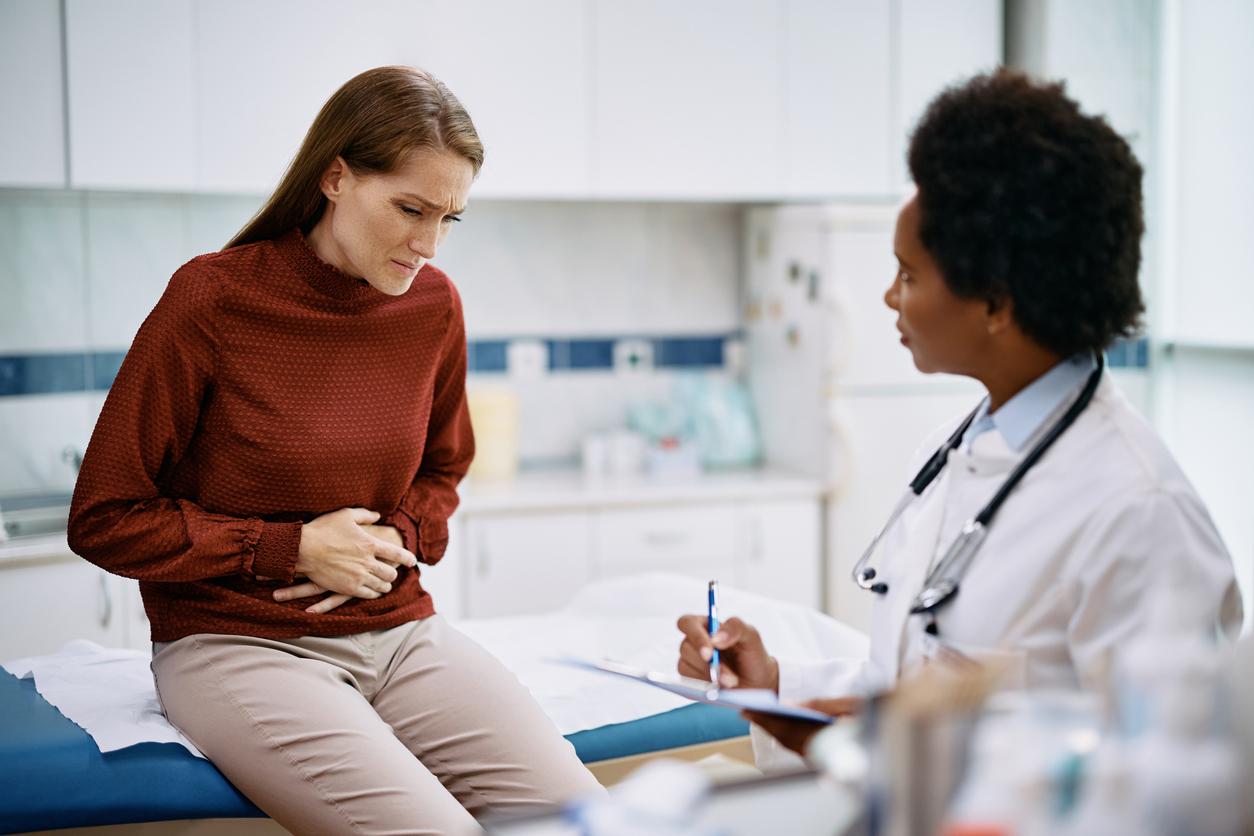Fatigue, anxiety, abdominal bloating… Menstrual pain causes patients to lose 36 days of work and social life every year.

- Menstrual pain prevents women from working and socializing 36 days a year.
- In Ireland, 59% of patients could not go to class because of symptoms caused by their menstruation.
- 40% of British participants admit that they do not know when they should consult a doctor to discuss their dysmenorrhoea.
They usually last one to three days. Pain during menstruation, called “dysmenorrhea”, is cyclical and returns with each menstruation. According health insurance, these begin with bleeding and are greatest when the bleeding is greatest. They can already be felt a little before the rules and sometimes continue a little after. The list of symptoms includes cramps, spasms in the lower abdomen, breast pain, abdominal bloating, anxiety, irritability, headaches, fatigue, nausea and diarrhea. .
Endometriosis: up to 60 days a year lost due to menstrual pain
According to a study carried out by Joii, a British company specializing in menstrual health, painful periods prevent women from attending social events, attending classes, exercising and working for 36 days a year. For patients whose periods are very disabling and for one in ten people with endometriosis, the figure is much higher. “20% of participants surveyed in the UK who live with endometriosis lose up to 60 days a year and those living in Ireland lose even more, up to 84 days a year,” can we read in the survey of 1,500 women.
Painful periods prevented 59% of women from going to class
Because of symptoms caused by their period, many women have to make sacrifices, such as missing a drink at work (34%), canceling a date (35%) or a weekend (28%). In Ireland, 59% of participants confirmed that they had not been able to attend classes due to menstrual pain and 52% were forced to take time off and not go to work.
“It’s a scenario I know very well. (…) I too have canceled events and stayed home due to immense menstrual pain. I had to apologize to my partners or my friends for staining their furniture, repeatedly excusing me to go to the bathroom, and washing my sheets almost every day,” said Justyna Strzeszynska, the founder of Joii.
The causes of menstruation-related symptoms are unknown
In many cases, the origins of menstrual pain are not known. Nearly a third of the women surveyed said they did not know the symptoms of endometriosis, 35% could not put their finger on the signs of polycystic ovary syndrome (PCOS), while 34% did not know to what to expect in case of uterine fibroids.
Despite the pain, the repercussions on their social life and their productivity, many patients have never consulted a doctor. For proof: 40% of people questioned in the United Kingdom admit that they would not know when they should consult a healthcare professional to discuss their period.
“What is shocking is how many of us suffer in silence and accept this situation. (…) More research and better menstrual health education are needed to help understand diseases, such as “endometriosis. All menstruating people need to feel they can take control of their body and understand it better,” concluded Justyna Strzeszynska.

















